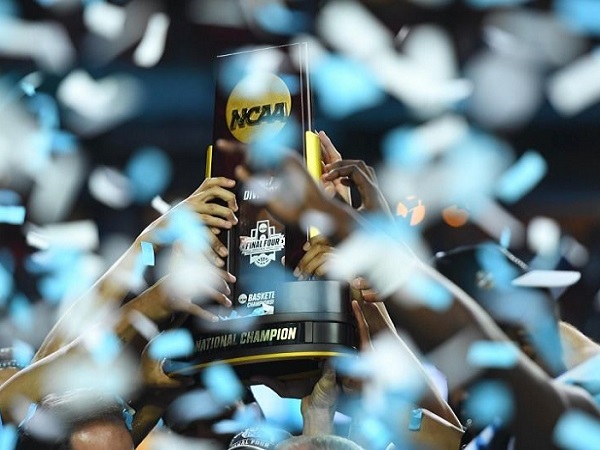
Years ago, as Lewis and Clark explored North America, treading across the continent from the Established East to the Wild West, it did so with expansion in mind. Later with the Monroe Doctrine and “Manifest Destiny” driven by American Presidents, the Congress, and the Judiciary, the United States of America became a union of fifty states, spanning from sea to shining sea.
When organized baseball began play in the 1870s and 1880s, the Senior Circuit National League was growing and expanding and eventually teamed up with the start-up American League to create Major League Baseball. It was, like America, westward expansion that grew the league and eventually its postseason schedule.
Major League Baseball’s league and postseason growth has mirrored America’s expansion west to the Pacific Ocean. Starting with the Brooklyn Dodgers and New York Giants move to Los Angeles and San Francisco in California, Major League Baseball later added the Angels in Anaheim, Astros in Houston, Rangers in Arlington, Texas (formerly the Washington Senators), Padres in San Diego, Twins in Minneapolis, Minnesota (also formerly the Washington Senators), Athletics in Oakland (formerly the Philadelphia and Kansas City Athletics), Royals in Kansas City, Mariners in Seattle, Rockies in Colorado, and Diamondbacks in Arizona, all of which were due west of the Mississippi River (a total of 13 teams). Where there has been expansion and movement east of the Mississippi (New York Mets, Milwaukee Brewers, Montreal Expos (now the Washington Nationals), Toronto Blue Jays, Tampa Bay (Devil) Rays, Miami (Florida) Marlins, the movement mirrors either the growth of cities and towns, replacing teams that moved, or filing a long existing need.
On Monday, October 1, 2018, Major League Baseball found itself in a peculiar situation, a first of its kind, specifically two game 163’s to determine the Division winners in the Central and West Divisions. Whereas most watching the postseason games would never complain about their team getting a shot to win, it does take a toll on head and heart ache and it could be improved, for financial, and health reasons.
Of the five major professional sports leagues in America, basketball (NBA), football (NFL), hockey (NHL), and soccer (MLS), nearly all accept more teams into their annual postseasons/playoffs compared to baseball (MLB).
As of 2018, the NFL has 32 teams and accepts 12 teams into its playoffs. The NHL has 31 teams and accepts 16 teams into its playoffs. The NBA has 30 teams and also accepts 16 teams into its playoffs. The MLS has 23 teams and accepts 12 teams into its playoffs. The MLB has 30 teams and accepts 10 teams into its postseason. Breaking that down, the NFL with two more teams than the MLB in its league accepts two more teams into its playoffs, but every other league accepts 2-6 more teams into its playoffs/postseason compared to the MLB with nearly the same or fewer league teams. Interestingly, the MLS has 7 fewer league teams compared to the MLB and still accepts more playoff/postseason teams (+2).
Historically, baseball has never been generous to teams seeking postseason eligibility. In the beginning, the team with the best record at the end of the season was crowned the champion with some variations and oddities. However, Since the beginning of what is accepted as the modern baseball postseason that existed between 1903-1968, although organized baseball began in 1876 and has had some semblance of a postseason since 1884, only two teams made the postseason, the winner of each League’s pennant (the team with the best record in each League), American and National, who went on to play each other in the World Series. Starting with the 1969 season, however, instead of two Leagues with no Divisions, the East and West Divisions were added to each League so four teams made the postseason each season between 1969 and 1993. The winner of the league series was crowned with the Pennant and went on to play the other League’s Pennant winner in the World Series.
For the 1995 season, when baseball actually implemented its new and now more familiar postseason structure, since the 1994 season was shortened due to a labor-management dispute, which led to a strike, Major League Baseball added one Wild Card spot and a Central Division to each League making three Divisions in each League. By doing so, Major League Baseball added a Division Series to the postseason where the first seed in each League (the team with the best record) would play the Wild Card team (the team with the fourth best record in the same League), while the second and third seeds along the same formula would play each other. When calculating both Leagues’ postseason entrants, the new rules allowed for eight postseason eligible teams. The winner of the best of five series would go on to the League Championship Series with the winner taking their League’s Pennant onto the World Series. Both the League Championship Series and the World Series were and still are best of seven game series, while the Division Series is a best of five games.
In 2012, Major League Baseball made its most recent postseason change by adding a second Wild Card team to each League, which is awarded to the team with the fifth best record, who plays in a one-game playoff against the second Wild Card team (the team with the fourth best record). The winner then plays the first seed in a Division Series with the same format as described above. Here, ten teams make the postseason, but two teams only get one game to decide 162, or 163 games.
Like the Louisiana Purchase, Major League Baseball would be wise to expand its postseason for three reasons:
-
More Postseason Television Dollars
Simple, more teams in the postseason means more copyrighted broadcasts to sell to traditional television partners or streamers. More advertisements. More drama.
-
More Division Series (eliminate the one game WILD CARD)
It makes sense that where the NFL plays 16 games per season it has a one-game elimination format based on injuries, timing, and the length of season. It also makes sense that the NBA and NHL have series in the playoffs where they each play 82 games during the regular season. The MLS has 34 regular season games per team and they play two (home/away) games per playoff matchup (most goals wins). When compared to the NFL, the MLS plays a little more than double the amount of regular season games and has double the amount of playoffs matches. However, the MLB plays 162 games during the regular season and yet has fewer postseason games in terms of ratio to games person season when compared to the MLS, NBA, NFL, and NHL. Where the 162 game season is a strength of Major League Baseball in that it allows the teams to battle it out making the playoffs that much more exclusive, if the MLB wants to add more dollars, equity, and eyes, it would be wise to implement some change.
In terms of timing, the “Wild Card Series” between the fourth and fifth best teams could be three games in length to limit the length. It would also help if the MLB went back to 154 games per season to limit length by eliminating length. The MLB should also consider a football model of taking the top two teams from each division, plus the two wild cards for 8 postseason teams per League, more in line with the NBA and NHL playoff formats for 16 total teams. Again, more television dollars. More advertisements. More drama. More equity.
-
More Teams Motivated to Win
When a team has a chance to make the playoffs or postseason, where anything can and does happen, the Murphy’s Law of Sports Playoffs (“Anything that can go wrong will go wrong”). Similarly, in the playoffs and lead up thereto, anything that can go right will go right. Therefore, if teams have more opportunity to make a run for the postseason as opposed to trading players and giving up at the July 31 trade deadline every year, fans and teams might and will see more excitement down the road. Furthermore, the longer series match-ups provide that a 80-90 win team will have to beat a 90-100+ win team for multiple games to advance. Again, more television dollars. More advertisements. More drama. More equity.
Baseball is a beautiful game, but a little postseason expansion will help the game survive, compete with other major professional sports, and succeed into the next generation.



























